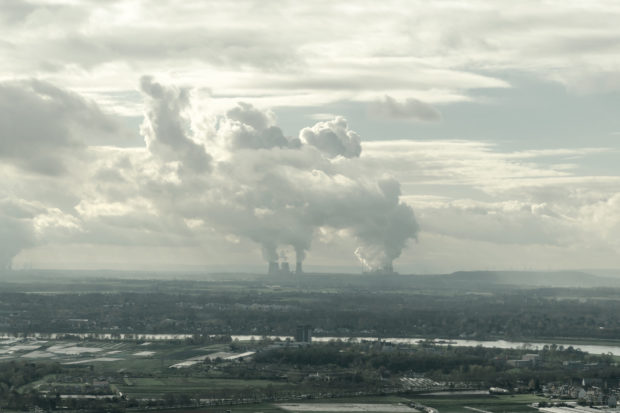
Image: nadisja/IStock.com via AFP Relaxnews
Led by researchers at the Max Planck Institute for Chemistry and the Department of Cardiology of the University Medical Centre Mainz in Germany, the study used a new method to estimate the effect of different sources of air pollution on death rates around the world.
According to the researchers’ estimations, which are published in the journal Cardiovascular Research, air pollution caused an extra 8.8 million premature deaths a year around the world in 2015 — which they say is equivalent to a reduction in life expectancy of nearly three years for each person globally.
Moreover, this reduction is greater than the reduced life expectancy caused by wars and other forms of violence (0.3-year reduction), parasitic diseases such as malaria (0.6 years), HIV/AIDS (0.7 years) and smoking (2.2 years).
Air pollution had an even stronger effect on shortening the lives of older people, with around 75% of deaths caused by air pollution around the world occurring in those aged 60 and over.
The researchers also found that air pollution appeared to have the biggest effect on cardiovascular diseases, which were responsible for the greatest proportion of shortened lives due to air pollution, accounting for 43% of the loss in life expectancy worldwide.
“When we looked at how pollution played a role in several diseases, its effect on cardiovascular disease was by far the largest —very similar to the effect of smoking. Air pollution causes damage to the blood vessels through increased oxidative stress, which then leads to increases in blood pressure, diabetes, stroke, heart attacks and heart failure,” explained one of the study’s lead authors, Professor Jos Lelieveld.
The study is the first to show the negative effects of air pollution on deaths according to age and type of disease and on life expectancy in individual countries and regions.
Co-lead author of the study Thomas Münzel also commented on the findings, saying, “Since the impact of air pollution on public health overall is much larger than expected, and is a worldwide phenomenon, we believe our results show there is an ‘air pollution pandemic’.”
“In this paper, we distinguished between avoidable, human-made air pollution and pollution from natural sources such as desert dust and wildfire emissions, which cannot be avoided. We show that about two-thirds of premature deaths are attributable to human-made air pollution, mainly from fossil fuel use; this goes up to 80% in high-income countries. Five and a half million deaths worldwide a year are potentially avoidable.”
The researchers estimated that if fossil fuel emissions were removed, which would reduce air pollution, the average life expectancy around the world would increase by just over a year, and by nearly two years if all human-made emissions were removed. CL/JB
RELATED STORIES:
Air pollution linked with increased number of visits to ER for breathing problems
Atmospheric pollution could disrupt menstrual cycle function — study